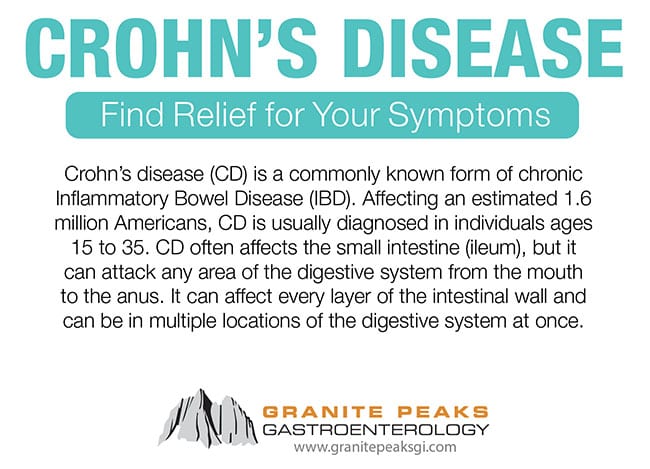Crohns Disease
Personalized Treatment for CD in Sandy & Lehi
Equal numbers of men and women appear to develop the disease and having a first degree relative with the disease may make it ten to fifteen times more likely to develop it, even though it is not considered an “inherited” disease in the traditional sense.
Smokers with Crohn’s disease tend to develop more severe issues with the disease, putting them at increased risk for requiring surgery.
